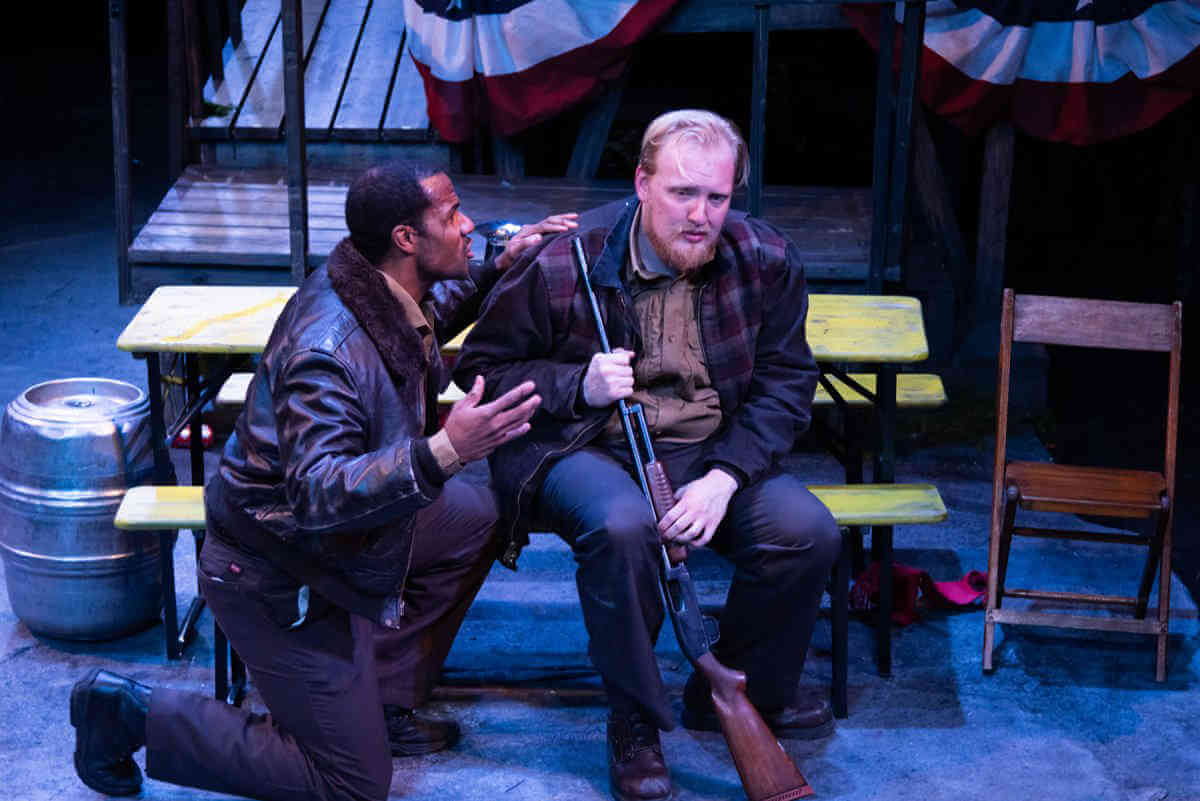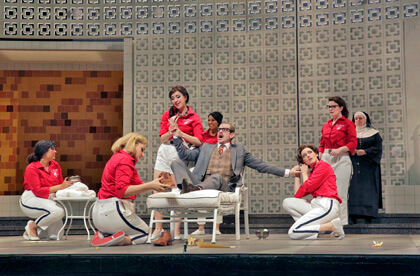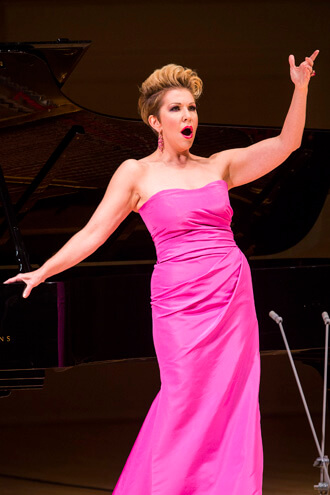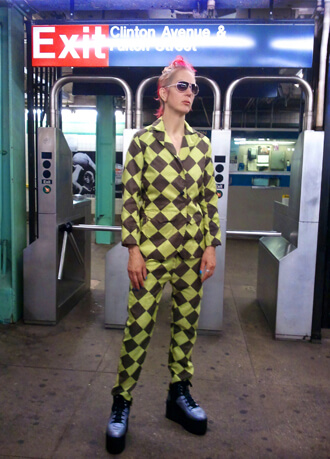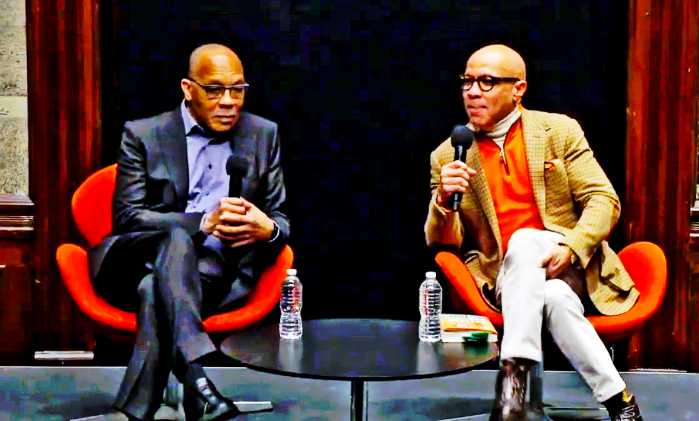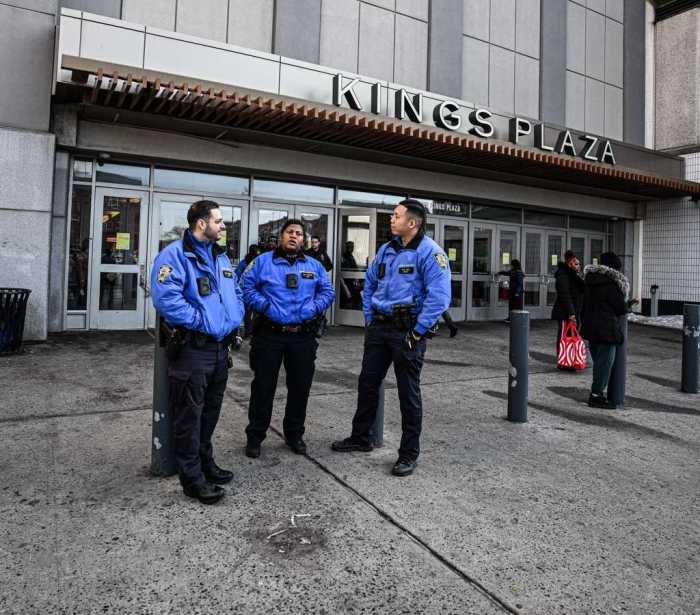Despite an often-enchanting score, “Der Freischuetz” by Carl Maria von Weber has never taken root outside of German-speaking countries because of its rather parochial village milieu. Louisa Proske and Chloë Treat’s production at the always-fascinating Heartbeat Opera (seen December 14 at Baruch University’s black box theater) transposed it to gun-happy Trump-era West Texas, with an emphasis on toxic masculinity. Mostly this worked very well, though for young American performers the chance to channel contemporary vernacular dialogue can prove both a liberation and a trap and occasionally did so here. But the ensemble playing — especially given doubled leading roles — compelled respect.
Daniel Schlosberg’s inventive arrangement for seven players did remarkable justice to Weber (cellist Clare Monfredo notably eloquent in “Und ob die Wolke”). His and William Gardiner’s electronic gloss on the demonic, influential Wolf Glen (here “Wolf Canyon”) scene brought forth duly weird special effects that actually brought this tough scene off. The performance artist azumi O E made a novel, scary Butoh-inflected Samiel, the piece’s resident devil.
In budding Heldentenor Ian Koziara, Heartbeat had a world-class Max, idiomatic, musical, and comfortable at all dynamic levels who should also be appearing in this part (and Wagner’s Erik and Froh) on international stages. Summer Hassan fielded a beautiful, still-developing voice with a pulse in Agathe’s lovely music, which anticipates Wagner’s Elsa and Elisabeth. There is much promise here.
An engaging actor, light bass Derrell Acon handled Kaspar’s music deftly in the small venue. Quentin Oliver Lee, solid enough as Max’s rival and chief pesterer Kilian, proved — dramatically and vocally — utterly commanding as Ottakar, here the state governor.
The four Bridesmaids — also handling the female chorus parts — sang delightfully. Among them, soprano Claire Leyden motivated absolutely every move and utterance to a degree rare in opera. She’ll sing the lead — created by Frances Alda — in Victor Herbert’s 1914 Met opera “Madeleine” at Christ & St. Stephen’s Episcopal Church in early March.
The denouement of “Freischuetz,” in which a Hermit (gifted AVA student Eric Delagrange, with a really fine bass voice that he tends to overdrive) absolves the guilty Max of wrongdoing basically because he’s “one of us,” can play uneasily. Proske and Treat smartly made the Hermit a fantasy double of Max; early in the opera he’d been so persecuted by the village that he here turned — at the prospect of exile and losing Agathe — into an unhinged mass shooter, contravening Weber’s heavenly lilting first finale. The opera’s unfamiliarity may, however, have worked against most spectators grasping this revisionist solution.
The company tackles Verdi’s “Macbeth” in Brooklyn in May.
Revered locally for work in many other kinds of music, Joyce DiDonato and Yannick Nézet-Séguin daringly jumped into the Schubert Lieder pool in the deep end, programming “Die Winterreise” December 15 at Carnegie Hall. The mezzo proved in particularly fine, largely mellow vocal form, and Nézet-Séguin showed himself to be an excellent collaborative pianist, only once or twice turning up the volume over-emphatically in postludes.
DiDonato, never one to hew to tradition for its own sake, enacted the cycle in a dramatic concept that sounded intriguing but somewhat spurious in advance: instead of embodying the abandoned lover, she positioned herself — via projected titles and her stance at a table, reading — as the recipient of her erstwhile suitor’s letters. By and large, she pulled it off through subtle movements and inflections. The one downside was that we didn’t always get to see her expressive eyes, focused as they were on the letters. But when she finally got up and embodied the wrenching final “Leiermann” from the beloved’s point of view, it was a moving coup de théâtre. For one whose only significant German roles — and not frequent ones — have been Richard Strauss’ Octavian and Komponist, she treated the text with care and subtlety. A colleague complained about her opera house level volume; but not everyone in Carnegie Hall is in orchestra press seats and people up top do like to hear!
It was salutary to see a huge hall full — and with many young people, a rarity at most Lieder recitals — for an afternoon of a stern Schubert cycle. Whether or not any “Winterreise” belongs on Carnegie mainstage is a separate issue. For those unconvinced by the gambit, the great Peter Mattei brings it to Zankel January 31. Meanwhile, the JDD/YN-S collaboration is viewable on line for months (at tinyurl.com/yx3wygkd) and highly recommended. Let’s hope they can find their way to offering some more Schubert Lieder locally, as this was such a fine afternoon musically.
Merkin Hall hosts New York Festival of Song’s always questing concerts. November 19’s event proved particularly intriguing. Redoubtable artistic director Steven Blier presented the major musical numbers from two short, politically aware music theater works by composers whose careers became interlinked: Kurt Weill’s 1933 “Der Silbersee” and Marc Blitzstein’s 1941 “No For An Answer.” Blier and associate artistic director Michael Barrett accompanied, sometimes solo and sometimes duo. The two works confounded my expectations: Weill’s allegorical fable proved pleasant but rather generic, but Blitzstein — whose agit-prop “The Cradle Will Rock” I’ve always resisted — created in “No For An Answer” a fascinating portrait of a working class immigrant community and also of a difficult upper class marriage. The songs showed unexpected depth and narrative surprises and were very moving, making one want to see the show sensitively cast and staged.
Sari Gruber showed acute skills as a singing actress; the lower and middle parts of her distinctive instrument still function beautifully. An experienced crossover performer, Rebecca Jo Loeb brought a well-modulated mezzo and meaningful phrasing to her work. Baritone John Brancy delivered both words and music magnificently — a real throwback to the great age of Broadway baritone singing. His duet with Loeb (“Francie”) and his solo “Weep for Me” proved among the evening’s highlights, as performance and composition. Alex Mansoori handled the tenor work capably enough but indulged in too much generalized shtick for my taste.
Somehow in decades of attending New York musical events I’d never found my way to The Rockefeller University’s comfortable, acoustically admirable Caspary Hall before November 20. That evening, the Met’s promising soprano Michelle Bradley shared her lustrous vocal gift with exuberance and sincerity before a very appreciative public. She had the experienced and deft support of Ken Noda, playing well on an excellent Steinway. Bradley’s soprano rejoiced in good projection, a seamless range recalling Eileen Farrell, and a shining personal timbre. In Barber’s “Hermit Songs” — written for Leontyne Price, no less — she gave delicate, verbally shaded readings, especially in the slower songs. Despite clear diction in three beautifully sung Duparc favorites, she still needs more pointed utterance of text, maybe particularly evident in Lina’s testing aria from “Stiffelio.” But Bradley clearly has the voice and technique for this and other Verdi parts, some of which — like the “Ernani” Elvira in San Francisco this June — are already inked at major theaters.
The artists gave a musically sumptuous reading of Strauss’ “Four Last Songs”. For encores, Bradley offered a sensational “He’s Got the Whole World in His Hands” and then accompanied herself impressively in a melismatic setting of the Lord’s Prayer. She is the real thing!
Most of the events at Caspary are chamber concerts — they even have free offerings some afternoons —and it’s definitely a destination worth finding. I hope to hear other vocal recitals there in future seasons.
David Shengold (sheng

